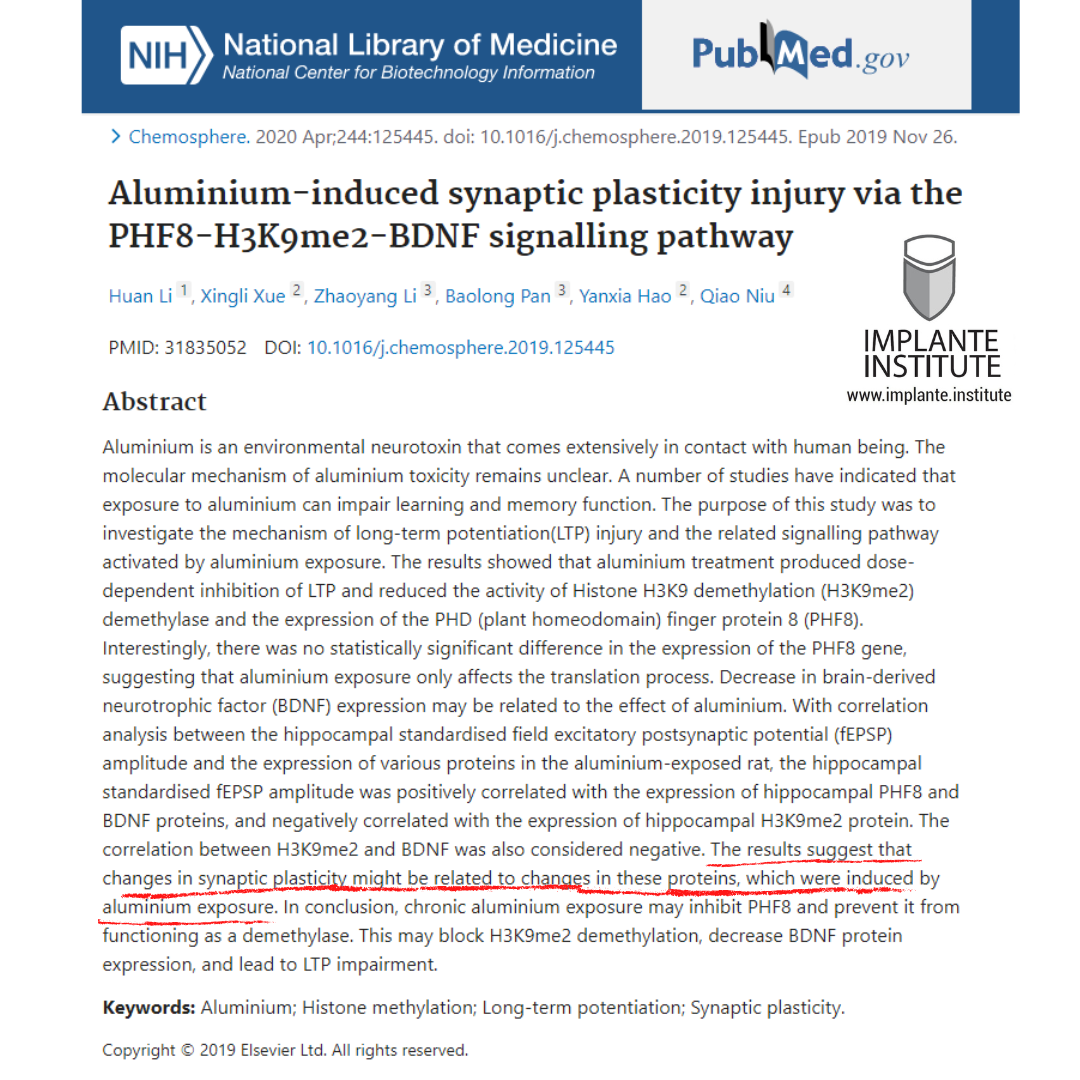Aluminium-induced synaptic plasticity injury via the PHF8-H3K9me2-BDNF signalling pathway
Link: https://pubmed.ncbi.nlm.nih.gov/31835052/
2020 Apr;244:125445. doi: 10.1016/j.chemosphere.2019.125445. Epub 2019 Nov 26.
Huan Li 1, Xingli Xue 2, Zhaoyang Li 3, Baolong Pan 3, Yanxia Hao 2, Qiao Niu 4
PMID: 31835052 DOI: 10.1016/j.chemosphere.2019.125445
Abstract
Aluminium is an environmental neurotoxin that comes extensively in contact with human being.
The molecular mechanism of aluminium toxicity remains unclear. A number of studies have indicated that exposure to aluminium can impair learning and memory function.
The purpose of this study was to investigate the mechanism of long-term potentiation(LTP) injury and the related signalling pathway activated by aluminium exposure.
The results showed that aluminium treatment produced dose-dependent inhibition of LTP and reduced the activity of Histone H3K9 demethylation (H3K9me2) demethylase and the expression of the PHD (plant homeodomain) finger protein 8 (PHF8).
Interestingly, there was no statistically significant difference in the expression of the PHF8 gene, suggesting that aluminium exposure only affects the translation process.
Decrease in brain-derived neurotrophic factor (BDNF) expression may be related to the effect of aluminium.
With correlation analysis between the hippocampal standardised field excitatory postsynaptic potential (fEPSP) amplitude and the expression of various proteins in the aluminium-exposed rat, the hippocampal standardised fEPSP amplitude was positively correlated with the expression of hippocampal PHF8 and BDNF proteins, and negatively correlated with the expression of hippocampal H3K9me2 protein.
The correlation between H3K9me2 and BDNF was also considered negative.
The results suggest that changes in synaptic plasticity might be related to changes in these proteins, which were induced by aluminium exposure.
In conclusion, chronic aluminium exposure may inhibit PHF8 and prevent it from functioning as a demethylase.
This may block H3K9me2 demethylation, decrease BDNF protein expression, and lead to LTP impairment.

In several analyzes on our platform, contamination of the plastic packaging on the implants can be seen.
See free analyzes at: https://implante.institute/analises?perm_status=1
